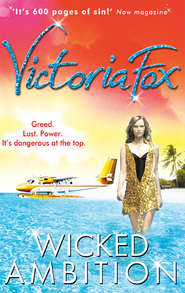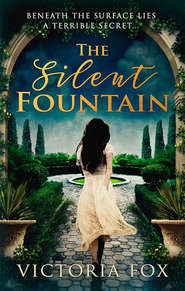По всем вопросам обращайтесь на: info@litportal.ru
(©) 2003-2024.
✖
Glittering Fortunes
Автор
Год написания книги
2018
Настройки чтения
Размер шрифта
Высота строк
Поля
‘I’ll be at my desk.’
‘Of course.’ She nodded. ‘And shall I light a fire?’
‘No, I’ll manage.’
Barbara was used to his economy with words. He didn’t give himself away, not to just anyone. He was twenty-six this winter, and to all intents and purposes had removed himself from the world. He was a distant rock battered by storms, a locked door in a darkened corridor, a half remembered song.
After what had happened, how could it be different?
‘Very well,’ she said softly. ‘Will that be all?’
‘Yes,’ Mr Lomax replied, ‘that’s all.’
It was cool in the library; cellar draughts seeping through the floorboards, the damp in the walls making everything chill despite the heat of the day. Charlie dragged on a frayed Guernsey and lit the flames. His hands were broad and work-roughened, the flesh stained and splintered, chapped by outdoor grind. Sparks burst and crackled and he spread his fingers to warm them in the orange, spitting glow.
He settled at the morning’s post. Red warnings glared through envelopes, demands for payment and threatened court action. Sigmund padded over and absent-mindedly Charlie scratched the retriever’s head. The dog put both paws on his lap, resting his chops and gazing up at his master forlornly.
The books told a sorry story. Usherwood was in dire straits and despite Charlie’s initiatives—selling off his mother’s art collection; opening the outbuildings; renting the south field as a campsite—it scarcely touched the sides. Each cheque was engulfed by a rising tide of demands. The drive needed resurfacing, the greenhouse was suffering a leak, the roof in the old maid’s lodgings begged a restoration, the arch on the chapel was collapsing … He couldn’t keep up. Maintaining the occupied quarters was bad enough. They’d had neither heating nor hot water for over a month, and Charlie had taken to bathing early morning in the bitter spinney stream.
Of course he was meant to be rich. This was a mansion, after all—palatial, exquisite, the finest example of Jacobean architecture in the West Country—and its inhabitant aristocracy, heir to great fortune. But the upkeep had sapped every penny of that fortune. Huge chambers slept unused, locked away, spaces once bright and vital now relegated to the graveyard. Piece by piece the house was shutting down. It reminded Charlie of a night when he was eight, camping in the trunk of the withered oak with a blanket up by his ears. The house had seemed an advent calendar of golden windows, his father passing through to extinguish one light at a time until nothing was left but the stain of dark upon dark, the shell of a house sliced out of the night.
Amid a nest of paperwork, a red blinking caught his attention.
One message pending:
‘Can’t stop, old bean,’ came a familiar, hated voice. ‘Susanna’s been hankering after a taste of the Cornish Riviera and you know me—never one to disappoint a lady. We arrive tomorrow. Tidy the place up, won’t you? Oh, and do spare us by getting those rotten hounds on a leash; Susanna won’t like them a bit.’ He was about to ring off, before a parting: ‘Tell the girls to whip up something nice. Susanna wants British; you know the thing. Tarts. Shortbread.’
The line went dead.
Charlie listened to it a second time before hitting delete. His knuckles cracked.
Cato Lomax.
Movie star, icon, Casanova—but the world didn’t know him as Charlie did. His Cato was narcissistic, decadent, reckless, wicked; the grubby-palmed boy who had terrorised him, pushing him from the apple tree so he knocked his front teeth grey, dunking his head in the glacial lake one vicious winter, bolting him in the stuffy leather trunk they had taken to Harrow and feeding in a sack of crawling beetles, trapping him in the secret passage that ran between the pantry and the sword room …
And then, when they were adults, taking from him the one thing Charlie could never forgive him for. People said it hadn’t been Cato’s fault, but Charlie knew better.
Acid clutched his heart when he thought of that furious, thundery night … Cato’s tail lights disappearing down the Usherwood drive, rain slashing the windows, a red torch bleeding into darkness …
The very last time he had seen her.
The manslaughter charge had been dropped. Nothing more said about it. That was what money could do—it could buy justice, as rotten and corrupt as it came.
But by Charlie’s judgement, his brother could never be forgiven.
Whenever he read about Cato in the papers, posing with a new actress girlfriend, he swallowed fury like a knot of wire. Despite it all Cato still imagined himself to be emperor of Usherwood. By virtue of his age the true and righteous Lord Lomax, winging in whenever it suited to boast his heritage to a Plasticine army of Americans. Cato had no clue about the place or what it needed; all he cared for was his reputation and the social currency Usherwood awarded. Being gentry wasn’t about playing polo and hanging pheasants; it was about a birthright that had been passed through generations, this wounded house that Charlie toiled for night and day because he felt it in his soul, his true devotion and his true belonging.
He went to the window and released the catch, grounding himself against the approaching storm.
That was it, then: the prodigal son returned.
Cato’s imminent arrival slid over the surrounding hills like an army on the mount. The air outside was fragrant. A cabbage white fluttered on to the sill, twitching its wings. Somewhere in the grounds a nightingale sang.
CHAPTER FOUR (#ulink_9b7ff671-e6a6-59ca-988a-4a5672d94c0d)
OLIVIA SHOULD HAVE known that the car wouldn’t start. For most of the year Florence Lark had been using the battered green-and-white Deux Chevaux as an elaborate planter, filling it with sorrel and sage, parsley and peppermint, basil and bay. Olivia wasn’t sure if this arrangement was intentional or if her mother had just neglected to unpack the allotment spoils one day and things had grown from there.
‘Take the bicycle,’ Flo said from her position on the caravan steps, where she was busy peeling apples into a basin. She was an attractive woman with a stream of honey-blonde hair, bright blue eyes and the skin of a seventeen-year-old. ‘It’s a glorious afternoon; you could do with getting some country air back into you. I can’t imagine how you put up with The Smoke for so long. I never could.’
‘It was only a year.’ Olivia had a brief, strange pang for the Archway bedsit, and the top decks of buses she’d see sailing past her window as she ate breakfast.
‘Well, a year’s long enough.’
‘I’m not staying, you know.’ She yanked the pushbike from its moorings amid a hillock of grass. A slick of oil smeared blackly across her dress and she wiped it with the back of her hand. ‘This is just a stopgap.’
‘Hmm, you say that now …’
‘I’ll be saying the same in a month.’
‘But you love the cove!’
‘Nothing ever happens here, Mum. It’s full of the people who never left.’
Her mother pulled a face. ‘Like Adrian Gold?’
Olivia glanced away. ‘Maybe.’
‘You’re drastically out of his league.’
‘You would say that.’
‘And you’ll never see it, of course.’ Flo sighed. ‘There he is sailing about with a string of airheads in bikinis without a brain cell to speak of between them …’
Olivia rolled her eyes. So much for the sisterhood that had been drummed into her since birth—and anyway, what was wrong with wearing a bikini and being hot and having Addy Gold lusting after you? All her life she had been steered away from the tricks that helped a girl look nice, and suddenly she felt pissed off, as if she’d been robbed of her only shot, which was ridiculous because it was hardly as if a stick of gloss and a spritz of Dior would have made all the difference. Or would it? Natural is beautiful, her mother insisted, and besides, stuff like high heels and make-up were Crimes Against Women. They were alternative, remember? But alternative was fine when you were forty and wore moccasins and smoked damp roll-ups, and not when you were sixteen and just wanted to go on a date without having to explain why your shoes were made of hay (that was an exaggeration—but only just).
Olivia saddled up. Thanks to this conversation she felt every inch the grumpy adolescent: how did coming home always achieve that?
‘Wish me luck,’ she muttered, before she could mutter anything else.
‘Don’t let that Lomax give you any trouble,’ counselled her mother. ‘He’s meant to be downright insufferable. Any nonsense and you tell him what for.’
In finding her feet on the pedals Olivia almost toppled sideways. It was ages since she’d ridden and the squeaky brakes and cranky gears did little to bolster the confidence. Flo gave her a push and she teetered off down the path.
Olivia might find herself pining for the city, but even she couldn’t deny how free she felt flying down Lustell Steep with the wind in her hair, up on the handlebars, sheer momentum carrying her. She could taste the ocean and hear the swooping cries of seagulls as they wheeled overhead. Over the mount she passed the church. Sweet buds nestled in hedgerows and the back-end of a hare darted into the mossy verge.
This was the way she used to come in the holidays, racing against her best friend Beth to reach the old bench first. Past the weathered seat there was a gap in the border, big enough for two girls to squeeze through. They called the field beyond the Hush-Hush—perhaps because it had been quiet as a lake on the day they’d found it, or perhaps because they’d sworn to keep its discovery a secret. In the hot months it was bright with corn and rape, kernels you could pick off in juice-stained fingers and pop their oily pods in your mouth. In winter it was rough with earth and churned up like the sea in a gale. This was where her mother had taken them when she’d first bought the 2CV, picking them up from school with a tray of eggs laid out on the rear shelf, pink and smooth as pebbles and lined up neatly in rows like a cinema for bald people. Flo had driven fast as a rocket across the field and the car had gone bouncing and bounding and leaping over the ridges, Olivia and Beth in the back, clutching each other and laughing till they cried, shrieking, ‘Slow down!’ even if they hadn’t wanted her to, and when they stopped they were amazed to see the shells still intact.
‘There you go,’ Florence had triumphed. ‘Best set of wheels on the market.’











